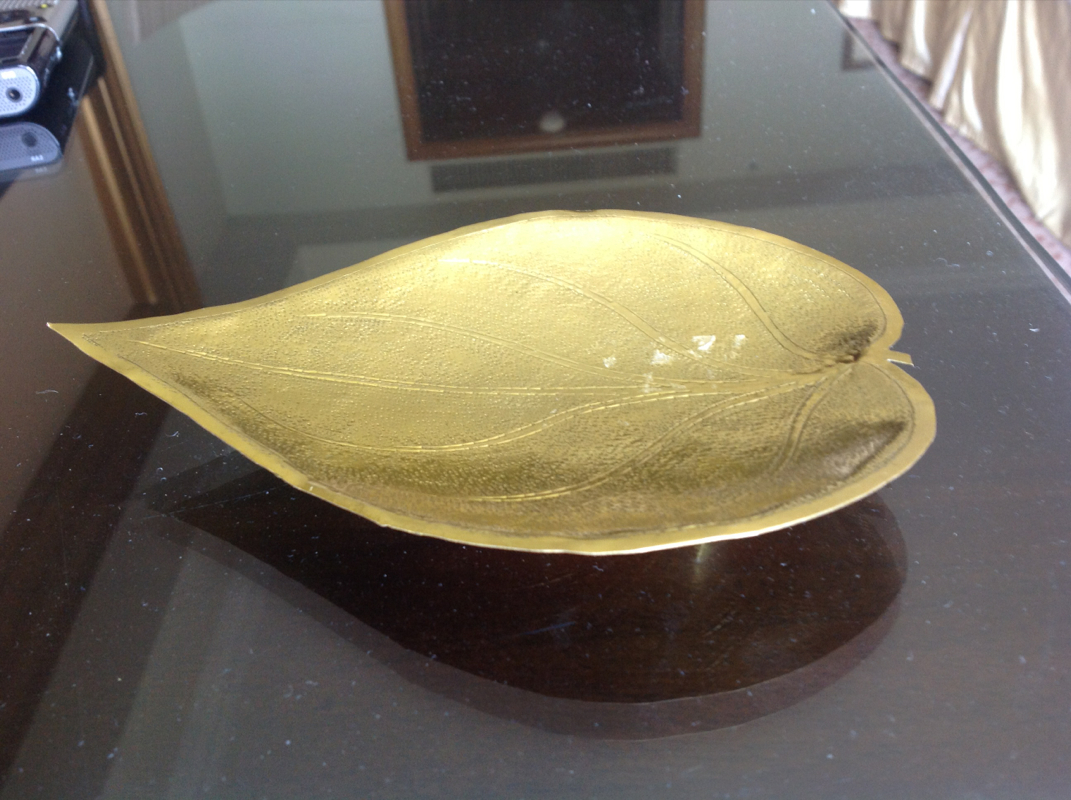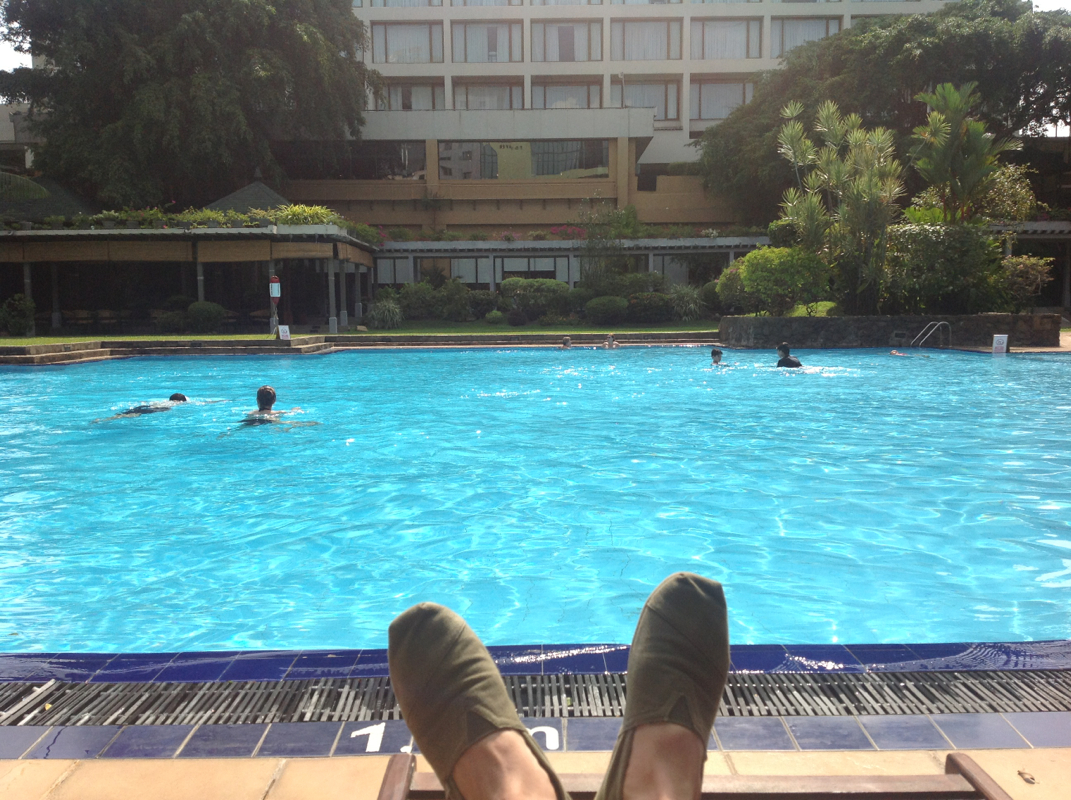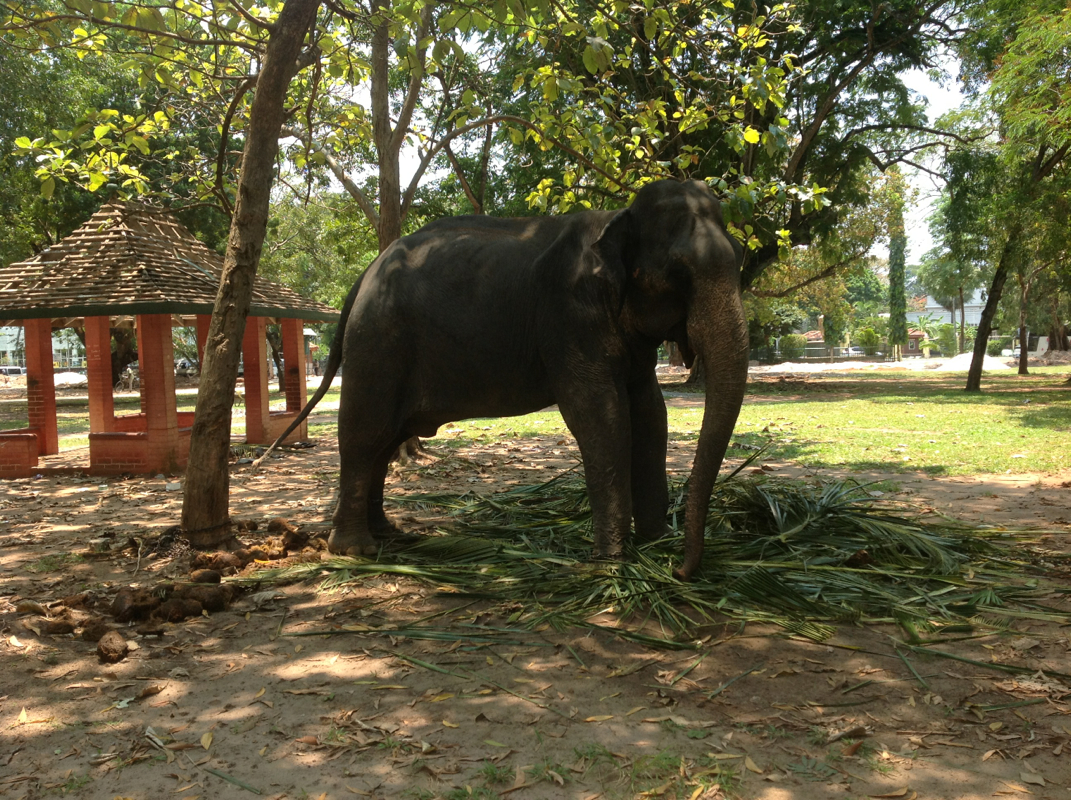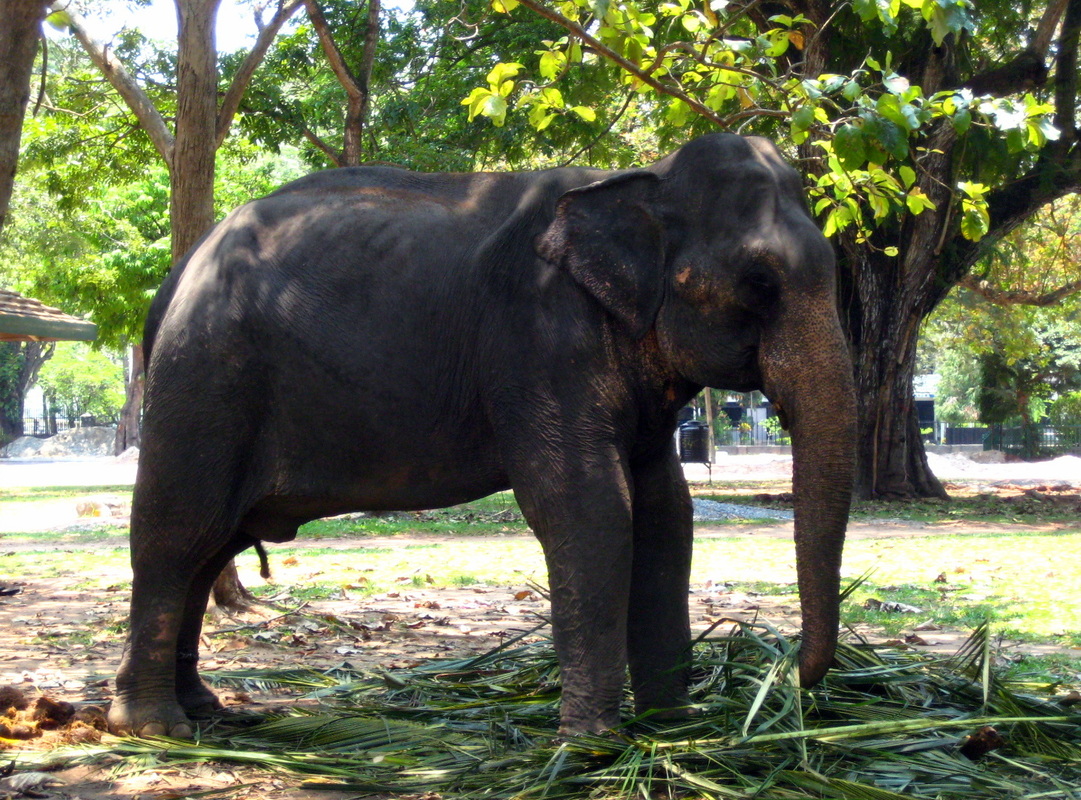I exited the premises and landed back on the residential street from whence I came in order to retrace my steps. I stopped to take a couple photographs of Beira Lake and noticed some people playing cricket, the most popular sport in Sri Lanka (apparently the national sport is volleyball, but I haven't seen anyone playing volleyball in empty industrial lots like I have with cricket). I noticed that while a recreational match was underway in a nearby field, the real entertainment was supplied by a little boy, an aspiring batsman, who was taking serious swings at lobbed pitches. When one bowler would tire, he would demand that someone else take his place and resume throwing to him. The dedication possessed by the little cricketer was sweet and inspiring, especially because it appeared to come from within. He pursued his craft with tremendous persistence without any prodding from his mother, who sat nearby manning the snack station. I managed to take a few photos of the little boy in action and then I resumed my journey back to my hotel.
Because it was still early and all I had been eating in the mornings were meat pastries and bagels, I felt that I owed it to myself to have at least one real, substantial breakfast while I was out here. I recalled having passed a sign at the entryway to the Crescat Boulevard shopping mall advertising a "traditional English breakfast" for 900 LKR (~$7 USD) at a place called Sugar Bistro and Wine Bar. Having traveled to the UK I had some idea of what this breakfast might entail, so with thoughts of meat, jam, and beans floating through my mind like so many little heart bubbles I entered Sugar and took a seat by the window. After I ordered my English breakfast (as if there were any doubt as to what I would get), an old British couple sat down at the table adjacent to mine. It was about 10am, and the woman at the table was gushing over the prospect of ordering cinnamon and honey ice cream. But first, she made some important observations and articulated them with a certain seriousness to her husband. "This table is rather wobbly, don't you think? It seems like every table we sit at is wobbly. I think they must be made wobbly on purpose!" Immediately I hoped that my twilight years would not devolve into a running commentary on the mundane. The presence of British vacationers here is unmistakeable- the accent, the sense of humor, the pallid skin palette. Sri Lanka is a former British colony, and seeing the English here makes me wonder if they ever give pause to consider that their continued presence in the country is tantamount to a kind of de facto form of neocolonialism. At one time, the Brits set up plantations in Sri Lanka and staffed them with Tamil slaves from India. Now they come here on holiday expecting a certain level of treatment by the heirs of that misfortune. This made me wonder whether Americans will visit Iraq 50 years from now and similary act as if nothing illegitimate and devastating was ever perpetrated by them. While I was busy pondering the subterranean subtext of post-colonial leisure travel, the first portion of my breakfast arrived- an exquisitely plated assortment of fruit. Back in 2007 I found out I was allergic to pomegranates (or at least pomegranate juice), and so I'm particularly vigilant about consuming unknown fruits. On the plate before me rested three colorful treats- a disc of pineapple, a wedge of watermelon, and a slice of some kind of neon orange fruit I did not recognize. Boldly going where I believed I had never gone before, I ate the pineapple, then the watermelon, and finally started to chip away at the new world of sweet radiance staking a claim as the last fruit standing. After taking a bite, I was certain that I had never eaten this fruit before. It tasted like 85% fruit, 15% rottenness. It had skin like a melon, but it was thin enough to consume. With each subsequent bite I wondered why anyone would ever eat this particular fruit when so many superior alternatives existed. I just hoped I didn't break into hives as the fruit sought to exact revenge on me for my caustic review (later I discovered that this "mysterious" fruit was, in fact, papaya. With this quandary resolved, I can honestly say that the only kind of papaya I desire is Gray's). The rest of my breakfast was as characteristically British as my painfully boring table neighbors, but infinitely more satisfying. I finished it in a period of time that some might think impolite, but I had lots of blog writing to do. I settled my bill and returned to my hotel only a few yards away, full of eggs, beans, potatoes, toast, jam, bacon, juice, and coffee, and thoughts that needed to be penned (or, in my case, pushed).
The rest of the day I spent blogging poolside until my battery begged me to be rejuvenated and I retired to my room to charge my iPad and recharge myself. Several hours and two posts later, I continued my English culinary streak with a dinner downstairs at Cheers, a British pub. I will say this: the ethical complexities of colonialism notwithstanding, Sri Lankans sure know how to bake a mean shepherd's pie.




 RSS Feed
RSS Feed